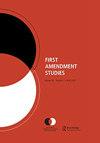为什么触发警告是有益的,甚至是必要的
Q2 Social Sciences
引用次数: 26
摘要
为了回应东方传播协会(ECA)的小组讨论和罗伯特·瓦茨博士在本期杂志上所写的文章,我提出了在课堂上实施触发警告的有用性和益处。我借鉴了我自己作为一名在一所保守学校教书的变性女性的经历,以及当代心理学理论和伦理学。我认为触发警告并不会损害言论自由(就像其他人,比如这里的Vatz博士所主张的那样),而且它们实际上对一些学生的健康是必要的。此外,合理地使用警告可以加强课堂参与和讨论,以及学生和教师的智力发展。本文章由计算机程序翻译,如有差异,请以英文原文为准。
Why trigger warnings are beneficial, perhaps even necessary
Abstract In response to a panel discussion from the Eastern Communication Association (ECA) and the article written by Dr. Robert Vatz in this issue, I make a case for the usefulness and benefit of the practice of trigger warnings in the classroom. I draw on my own experience as a transsexual woman teaching at a conservative school, as well as contemporary psychological theory and ethics. I argue that trigger warnings are not detrimental to freedom of speech (as others, such as Dr. Vatz here, contend) and that they are in fact necessary for the well-being of some students. Moreover, judicial use of warnings can enhance classroom participation and discussion, and the intellectual development of students and faculty.
求助全文
通过发布文献求助,成功后即可免费获取论文全文。
去求助
来源期刊

First Amendment Studies
Social Sciences-Law
自引率
0.00%
发文量
0
期刊介绍:
First Amendment Studies publishes original scholarship on all aspects of free speech and embraces the full range of critical, historical, empirical, and descriptive methodologies. First Amendment Studies welcomes scholarship addressing areas including but not limited to: • doctrinal analysis of international and national free speech law and legislation • rhetorical analysis of cases and judicial rhetoric • theoretical and cultural issues related to free speech • the role of free speech in a wide variety of contexts (e.g., organizations, popular culture, traditional and new media).
 求助内容:
求助内容: 应助结果提醒方式:
应助结果提醒方式:


